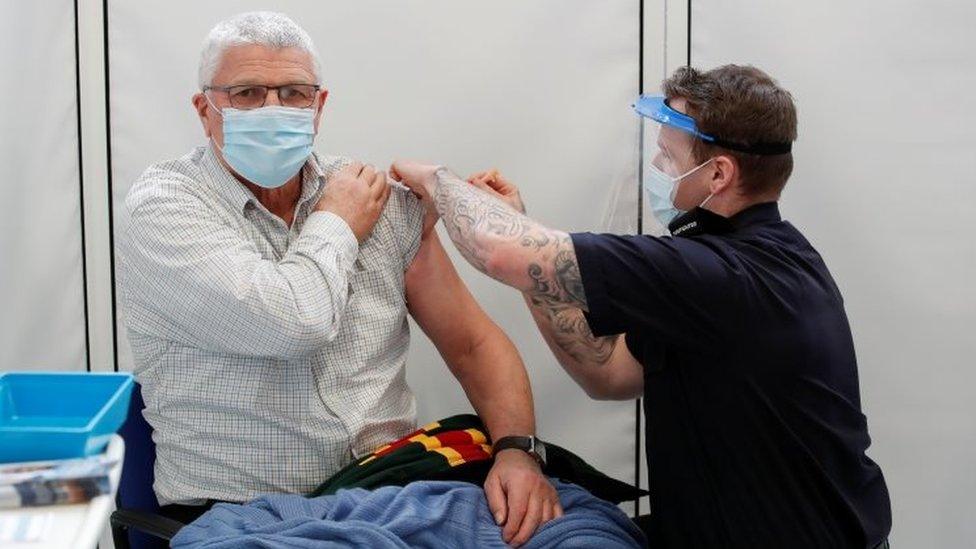Covid: Scientists developing vaccine boosters to tackle variants
- Published
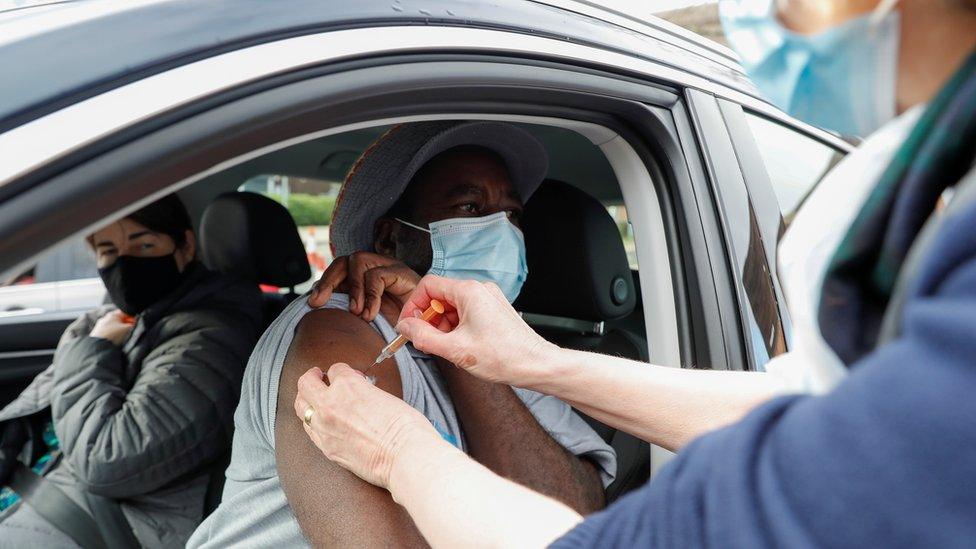
Scientists are developing booster jabs to tackle Covid-19 variants, a health minister says, amid concerns about the Oxford-AstraZeneca vaccine's efficacy against the South Africa strain.
The vaccine provides good protection against the dominant 'Kent' variant in the UK.
But a small study suggests it offers "minimal protection" against mild disease from the South Africa variant.
Some 147 cases of this variant have been found in the UK.
Health minister Edward Argar said the government was anticipating that an annual jab could be required to combat variants of coronavirus.
He also said there was "no evidence" the Oxford-AstraZeneca vaccine was not effective at preventing severe illness from the South African variant, which scientists have warned could become more widespread in the UK.
In South Africa, where the variant - known as 501.V2 or B.1.351 - accounts for 90% of new coronavirus cases in the country, the rollout of the Oxford-AstraZeneca vaccine has been put on hold awaiting further advice.
Early research suggests other vaccines are also likely to offer less protection against the South African variant than against the original virus.
Mr Argar told BBC Breakfast that every study "deserves to be taken very seriously" but there was "no evidence" that the Oxford-AstraZeneca vaccine was not effective at preventing severe illness from coronavirus "which is the key thing we are seeking to tackle".
South Africa's suspension of the rollout of the vaccine was only "temporary" at this stage and the "context is a little bit different" to the UK where the Kent variant is the dominant strain, he said.
Meanwhile, vaccines minister Nadhim Zahawi said the public could have "confidence" in the UK's Covid vaccines which "appear to work well" against the dominant variants in the country.
Writing in the Daily Telegraph, external, Mr Zahawi said: "Our brilliant scientists and medical advisers are now working on the potential for new versions of existing vaccines to offer further protections against Covid variants."
He added: "We need to be aware that even where a vaccine has reduced efficacy in preventing infection there may still be good efficacy against severe disease, hospitalisation, and death."
Dr Peter English, a consultant in communicable disease control, said he hoped to see the availability of new vaccines tailored to the South African variant "within months" as the technology was "well-established".
'Significant implications'
Dr Mike Tildesley, an infectious disease expert who advises the government, told BBC Radio 4's Today programme that "it's very possible" the South Africa variant could already be quite widespread in the UK.
The "surge testing" taking place in certain areas in England "really needs to be effective" to halt its spread, he said, but "sadly we may be in a similar situation to the Kent variant" which eventually spread across the whole country.
He added there were "significant implications" if it was the case that the Oxford-AstraZeneca vaccine was less effective against the South Africa variant, as it may mean "more restrictions might be needed for longer".


Viruses mutate - so what is happening is not surprising.
The mutations seen in South Africa change the part of the virus that the vaccines target.
It means all the vaccines that have been produced so far are likely to be affected in some way.
Trials for Novavax and Janssen vaccines that were carried out in South Africa showed less effectiveness against this variant. Both are currently before the UK regulator.
Therefore the news about the Oxford-AstraZeneca does not come out of the blue.
The fact it now only has "minimal" effect according to reports is concerning - the other vaccines showed effectiveness in the region of 60% against the South African variant.
But we should be careful about rushing to judgement. The study was small so there is only limited confidence in the findings.
What is more, there is still hope the vaccine will prevent serious illness and hospitalisation.
What this once again illustrates is the pandemic is not going to end with one Big Bang. Vaccines are likely to have to change to keep pace with the virus.
Progress will be incremental. But vaccines are still the way out of this - and as things stand they remain very effective against the virus that is dominant in the UK.

Additional "surge" testing is taking place in small areas of England including parts of Surrey, Bristol, London, Kent, Hertfordshire, Walsall, Gloucestershire and Worcestershire.
Positive cases will be analysed to see if they are caused by the South African variant with results coming back in around seven to 10 days, according to the director of public health in Worcestershire, Dr Kathryn Cobain.
Prof Shabir Madhi, who led the Oxford-AstraZeneca vaccine trial in South Africa, told the Today programme there was "still some hope" the jab may perform well against the South Africa variant when it comes to protecting against severe disease.
He said he was "extrapolating" that from the efficacy of the Johnson & Johnson vaccine which used "similar technology" and had similar immune effects.

LOOK-UP TOOL: How many cases in your area?
OXFORD JAB: What is the Oxford-AstraZeneca vaccine?
QUARANTINE: Will I need to self-isolate in a hotel?

The new study of the Oxford-AstraZeneca jab, which has not yet been peer-reviewed, involved about 2,000 people who were on average 31 years old.
A spokesman for the pharmaceutical company said it had not yet been able to properly establish whether the jab would prevent severe disease and hospitalisation caused by the South Africa variant because those involved in the study had predominantly been young, healthy adults.
But the company expressed confidence the vaccine would offer protection against serious cases, because it created neutralising antibodies similar to those of other coronavirus vaccines.
Prof Sarah Gilbert, the vaccine's lead researcher, said a modified version of the jab designed to combat the South Africa variant was likely to be ready to use in the autumn.
Prof Sarah Gilbert said the new version of the vaccine "will be available for the autumn"
Data on two new coronavirus vaccines that could be approved soon - one from Novavax and another from Janssen - appear to offer some protection.
And early results from Moderna suggest its vaccine is still effective against the South Africa variant.
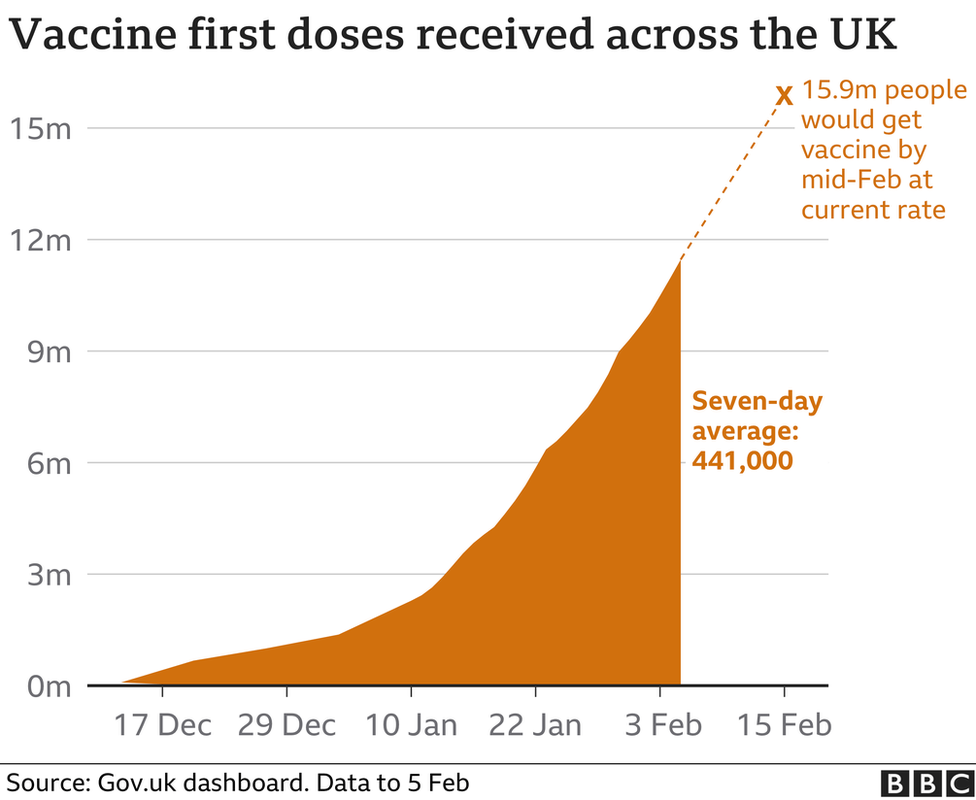
It comes as:
More than 12 million people in the UK have now had at least one dose of a coronavirus vaccine, with nearly 550,000 first jabs given out on Saturday
The government says coronavirus vaccines will be offered to everyone living in the UK free of charge, regardless of their immigration status. They want people in the country illegally to know they will not be at risk of deportation if they come forward for a jab
The government is aiming to offer first doses to 15 million people in the top four priority groups by 15 February. At the current rate, about 16 million people would receive a first jab by that date
Meanwhile, the daily number of cases recorded in the UK continues to fall, but remains high, with another 15,845 new cases reported on Sunday
The latest figures also showed another 373 people in the UK have died within 28 days of a positive test - although fewer deaths tend to be recorded over the weekend because of reporting delays.


LOCKDOWN LEARNING: Need some assistance with home-schooling? BBC iPlayer is here to help
THE THURSDAY MURDER CLUB: Escape the week with Richard Osman's bestselling crime novel...



Do you have confidence in the Covid vaccines? Tell us by emailing: haveyoursay@bbc.co.uk, external.
Please include a contact number if you are willing to speak to a BBC journalist. You can also get in touch in the following ways:
WhatsApp: +44 7756 165803, external
Tweet: @BBC_HaveYourSay, external
Or fill out the form below
Please read our terms & conditions and privacy policy
If you are reading this page and can't see the form you will need to visit the mobile version of the BBC website to submit your question or comment or you can email us at HaveYourSay@bbc.co.uk, external. Please include your name, age and location with any submission.
- Published7 February 2021
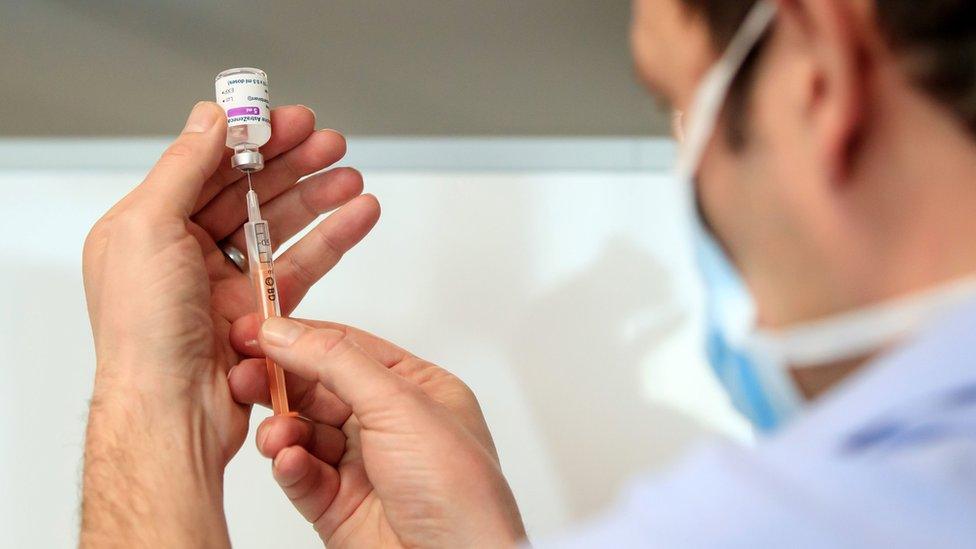
- Published8 February 2021
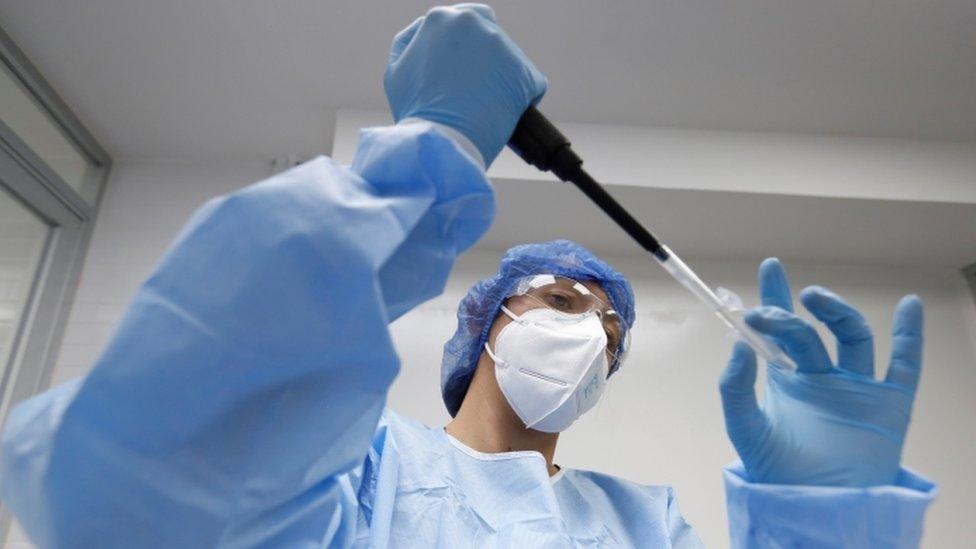
- Published7 February 2021
